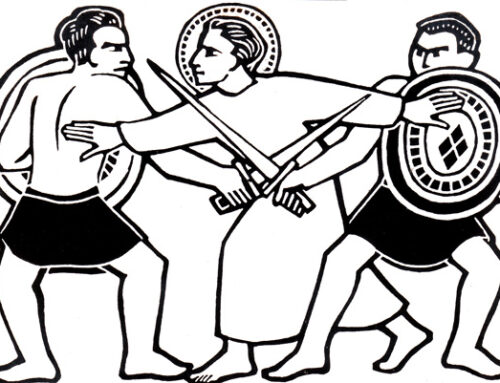Relationship: Developing Connections
December 6, 2016
Categories: Justice
This blog post is Part 11 in a 12-part blog series on Christianity and justice. (If you missed the first post, you can find it here.) After doing some background reading and research to get educated on the issue you are passionate about, the next step is to develop relationships and make connections with other people working on the same issue.
It is interesting that Jesus didn’t do his ministry alone. He had 12 disciples who followed him everywhere, listened to his teachings, and supported him in his time of need. Jesus even sent his disciples out to do different kinds of work at various points in his ministry. Among these 12 disciples, Jesus had 3 closest disciples, Peter, James, and John, who had a special connection with him. And in addition to the 12 disciples, Jesus had many other followers and supporters. Like Jesus, it is impossible for us to do the work of justice by ourselves. We need relationships and community.
Like we discussed in the last post, there are likely other people who have been thinking about and working on this issue for quite some time. They may have an organization and structure already in place for their work. If you venture out on your own, you might be trying to reinvent the wheel. You could be struggling through the first few steps, when someone else has already figured them out and is on to the next task at hand. By developing relationships and partnering with others who are already working on this issue, you can apply your gifts and talents where they are needed most, and apply your energy in an effective and efficient way.
Another reason why it is important to develop relationships and make connections with others who are working on the same issue is that doing justice can be hard work. There are a lot of roadblocks to change, and it can be disheartening when one’s efforts do not result in immediate change. Sometimes it can feel like progress toward justice involves two steps forward and one step backward. If you have other people around you who are working toward the same goal, you can support each other when the going gets tough. If one person loses heart, another person can help encourage and support. We can’t do justice work alone. We need other people helping and supporting us along the way.
When you begin to meet people and develop relationships, it is important to lead with humility. The people you meet will likely have greater knowledge and experience about this issue than you do. Ask questions, listen, and try to learn all you can. Seek first to understand, before trying to share your opinion and ideas. In fact, it is probably a good idea to learn, observe, and participate for awhile before making suggestions for how to do things differently.
Take time at the beginning to develop relationships and make connections with others who are working toward the same goals you have. This community-building process will allow you to be more effective and efficient in your helping efforts, and it will also provide you with the essential support that you will need along the way.
Discussion: What is one step you could take toward developing relationships and connections with others who are passionate about the justice causes that you would like to work on?
Click here to read Part 12: Action, Putting Justice Into Practice
Related Thoughts

Subscribe To My Newsletter
Join my mailing list to receive the latest blog posts.
Receive my e-book “The Mental Health Toolkit” for free when you subscribe.





